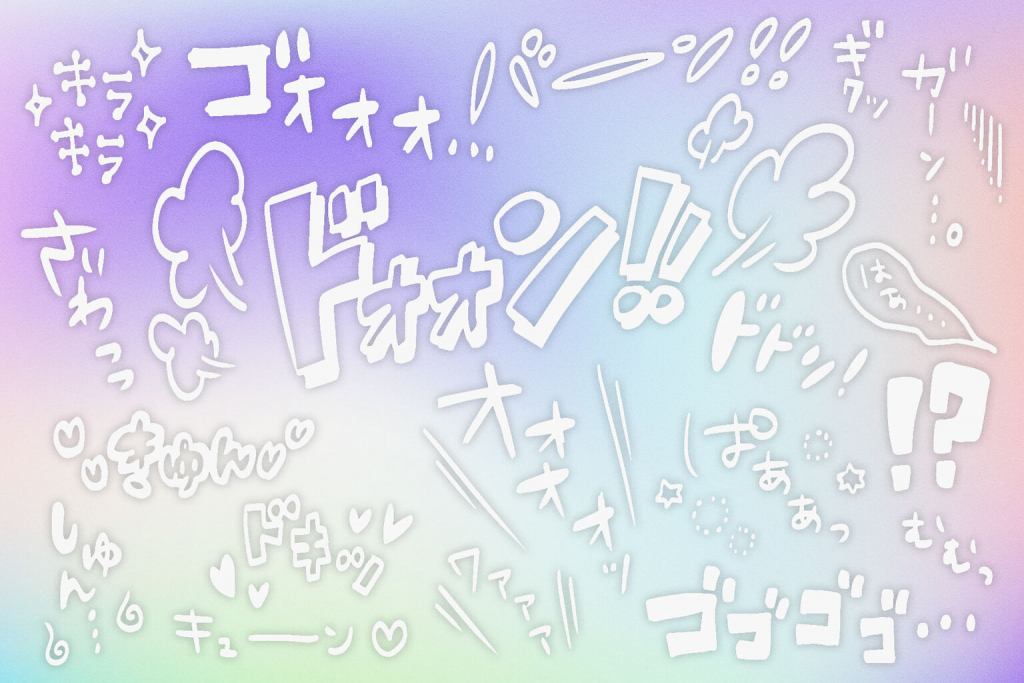One of the most efficient ways to pick up new vocabulary in Japanese is to learn words that you can use immediately. As the weather gets warmer in Tokyo, what better than picking up a few new onomatopoeias to help you freely express yourself (read: your discomfort) this season.
See this article for a crash course on what Japanese onomatopoeia are.
1. Mushimushi
Summer in most of Japan is notorious for its high temperature and high levels of humidity. At times it will feel as if you’re walking through a body of water; that’s how hot it can get. Mushimushi is a suru verb you can use to describe hot, humid summer weather.
何もしなくても暑いほどむしむしする。 Nani mo shinakute mo atsui hodo mushimushi suru. It’s hot and sweltering without even doing anything.
2. Giragira
When you’re waiting outside and you feel the sun on your head? You could say the sun is blazing. Giragira is one onomatopoeia you can use to express that atrocious heat.
太陽がぎらぎらと頭上に照りつけた。Taiyou ga giragira to zujou ni teritsuketa. The sun glared down overhead.
3. Gokugoku and Gabugabu
It’s likely you will sweat a lot during summer in Japan and one way to prevent heatstroke is to keep hydrated. A lot of people swear by ionized waters such as Pocari Sweat to keep their mineral levels in check. When you’re gulping down your cold drink freshly out of the vending machine, use one of these handy onomatopoeias: Gokugoku and gabugabu. They can be used somewhat interchangeably in conjunction with the verb “to drink.”
水をゴクゴクと飲んでいる。Mizu wo gokugoku to nondeiru. Gulping down water.
ビールをがぶがぶと飲んでいる。Biiru wo gabugabu nonda. Gulping down beers.
4. Jirijiri
One more to help you describe just how scorching hot the sun can get, especially between midday and 2pm. You can use jirijiri in the same way you would use giragira. Fun fact: jirijiri can also be used to describe sizzling oil.
太陽がじりじり照りつける。Taiyou ga jirijiri teritsukeru. The sun is shining steadily.
5. Dakudaku
Back on the topic of sweating, you might be part of the group of people who will have a streak of sweat rolling down your forehead or arms (or back) during the summer. Use dakudaku to express how much sweat is seeping out of your pores.
汗をだくだくかいていた。Ase o dakudaku kaiteta. Sweating profusely.
6. Hinyari
While outside will be crazy hot, once you go indoors, it’s a different story. Trains, restaurants and shops will not hesitate to blast the air conditioner. If you didn’t want to use onomatopoeia, one could just say suzushii. But you can mix it up by using hinyari instead.
軽井沢は夏でも空気がひんやりしてて気持ちいい。Karuizawa wa natsu de mo kuuki ga hinyari shitete kimochi ii. The air in Karuizawa is cool and pleasant even in summer.
7. Soyosoyo
There are rare summer days and evenings when you’ve got a pleasant breeze blowing. You can use soyosoyo to describe a wind blowing softly.
風がそよそよ吹いている。Kaze ga soyosoyo fuiteiru. The wind is blowing gently.
8. Nonbiri
Now, not many of us have free summers anymore but we thought it might be nice to have one onomatopoeia on this list that is for those lazy Sundays spent doing absolutely nothing: Nonbiri, which is also used with suru.
休みの日は家でのんびりしたい。Yasumi no hi wa ie de nonbiri shitai. On days off, I want to stay in and do nothing.









